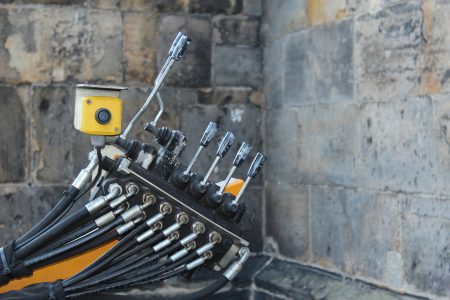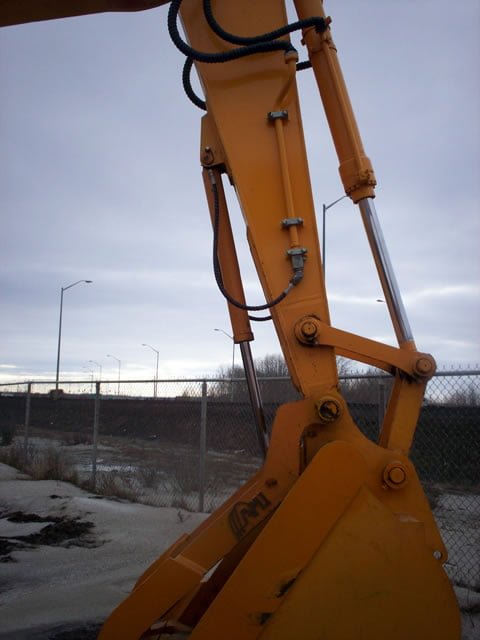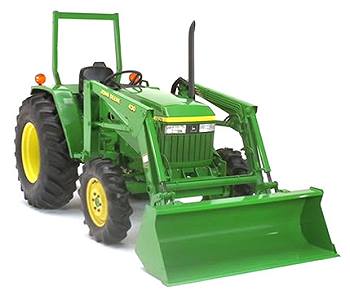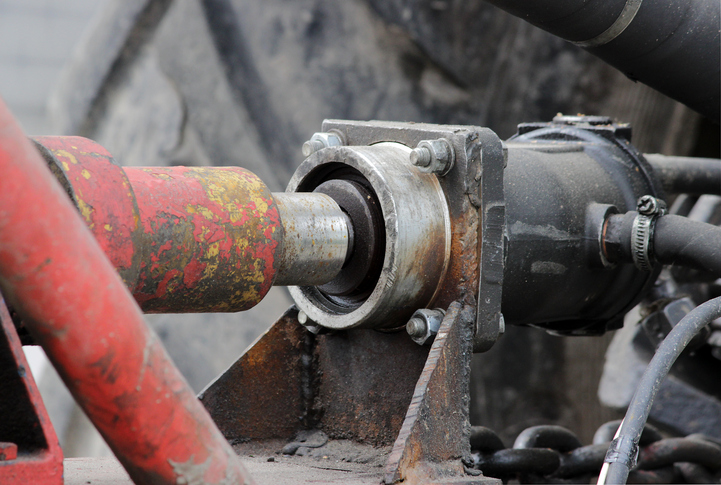 Hydraulics are the backbone of just about every piece of industrial equipment we use. Whether you work in manufacturing, transportation, or agriculture, hydraulics are the motive force behind most of your equipment.
Hydraulics are the backbone of just about every piece of industrial equipment we use. Whether you work in manufacturing, transportation, or agriculture, hydraulics are the motive force behind most of your equipment.
Hydraulics are a simple and reliable way to transfer energy and create motion. Hydraulics use a high-pressure fluid to create motion in either a linear or rotary fashion. When it comes to rotary motion, electric motors can also be used to create rotation, however electric motors can be bulky, expensive and susceptible to damage from dust, dirt and the debris of dangerous job sites. When it comes to linear motion, your left to using screws, magnetic force, or a series of levers to convert rotary motion to linear motion.
Hydraulics can accomplish all this in a robust package that can continue to operate even in the harshest of environments. Hydraulic equipment relies on the principle that a fluid under pressure will continue to exert that pressure in all directions equally on all surfaces it is in contact with. That means if your hydraulic pump produces 40 pounds of pressure, it will exert the same 40 pounds of pressure on the working cylinder. The way you increase your ability to do work is by increase the size of the working cylinder. If you pump has a 1 square inch surface area it will take 40 pounds of force to increase the pressure of your working fluid to 40 pounds per square inch. If the same 40 PSI is exerted on a 10 square inch working cylinder, it will be able to create 400 pounds of force. This principle is what allows hydraulics to move easily under such incredible forces.
The fact that the working fluid is generally a light oil makes it easy to transfer in hoses and pipes. These hoses and pipes are the most susceptible place to damage in your whole hydraulic system. As your equipment moves and bends it can loosen some of the fittings on your hoses. Also, whenever hydraulics are engaged or moved the pressure can change rapidly in the hoses causing pressure waves in the system. Over time, all this can start to loosen the fittings and ends of your hoses. Due to the extremely high working pressure of hydraulic systems, this normal wear and tear can lead to leaks.
Leaking hydraulic fluid can also come from any pump or motor shaft seals or in the seals around the hydraulic cylinders. These seals are designed to hold back the extreme pressures of the system even while they are in motion. The motion of the shaft or cylinder combined with the relatively abrasive environment of agriculture, construction, or manufacturing, these seals can wear out or become deformed and start to leak as well.
Leaking hydraulic fluid can make a mess of your equipment. As the fluid leaks out it will attract dust and dirt and the light oil used as a working fluid can dry into sticky problems on your equipment. Keeping your equipment clean is one of the best ways to preserve its value and keep it operating correctly for a long time. Replacing hydraulic hoses and seals can be a long and expensive ordeal. To keep your costs down and your equipment up, use BlueDevil Hydraulic Stop Leak to seal your hydraulic leaks from the inside out! BlueDevil Hydraulic Stop Leak does not contain any particulates or solvents that will damage your hydraulic system but will recondition your seals and connections sealing your leak, guaranteed!
To learn more about BlueDevil Hydraulic Stop Leak, visit our product information page here:
You can also stop by any of our partnering retailers like:
- AutoZone
- Advance Auto Parts
- Bennett Auto Supply
- CarQuest Auto parts
- NAPA Auto Parts
- O’Reilly Auto Parts
- Pep Boys
- Fast Track
- Bumper to Bumper Auto Parts Specialists
- S&E Quick Lube Distributer
- DYK Automotive
Pictures provided by:
leaking_hydrauilc_fluid.jpg – By Kleuske – Licensed By Creative Commons Via Wikimedia – Original Link
BlueDevil Products can be found on Amazon.com or at AutoZone, Advance Auto Parts, O’Reilly Auto Parts, NAPA, and other major auto parts retailers.
2 responses to "Why is My Equipment Leaking Hydraulic Fluid?"
2 Comments
Leave a Reply
Related Articles





Does it work on leaks already in progress
Pamela-
Yes, as long as the leak isn’t more than a seep or a light drip, you would be a good candidate for the product. Feel free to contact our technical support line at 888-863-0426 with any other questions.
Thank you!
-BDP